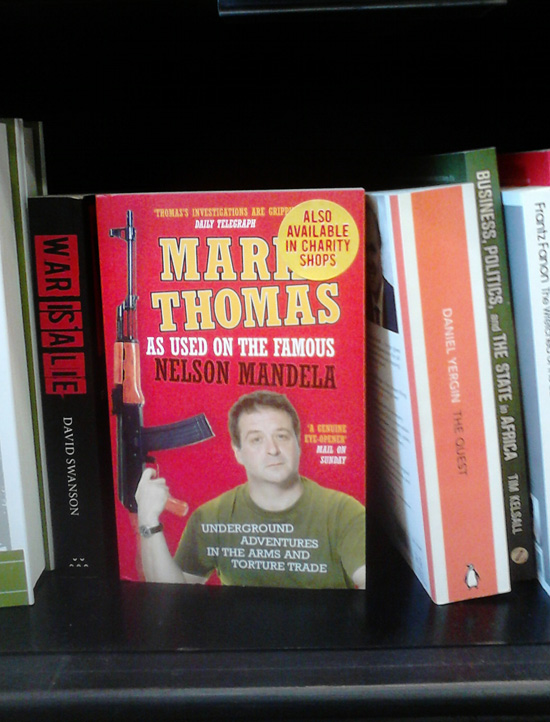Sometimes judging panels get it right – Christie deserved to win
Bridget Christie’s previous Fringe shows have been slightly awkward, quirky affairs in which she dressed up an ant, a donkey, and King Charles II. This year is different. Clothed in her everyday jeans-and-t-shirt garb, Christie has dropped the absurdism to deliver a powerful, moving and hilarious feminist tour de force. There is a stereotype that feminists don’t have a sense of humour. Since when, asks Christie, did a human rights movement have to be funny? Nobody said “That Martin Luther King chap, he’s got some great ideas. But he’s just not funny enough. I’d better carry on being racist.” Furthermore, Christie counters the stereotype throughout. She savages Sir Stirling Moss’ comments that women don’t have the mental capacities required for Formula 1 with a protracted, gleefully sadistic routine about Moss’ (real) lift shaft accident. She sarcastically praises the stationary manufacturer Bic for finally producing a streamlined pink pen especially for women. She relates a semi-breakdown moment in which she started removing lads’ mags from shops and hurling them in the nearest bin.
Despite her barely repressed outrage, the show never feels preachy, and Christie’s tone remains playful and upbeat. She never forgets that this is first and foremost a comedy show, so her more serious points about genital mutilation, domestic violence and sex trafficking are smuggled in with near-subliminal postmodern finesse. Prior to Christie, only two solo female acts have won the Edinburgh Comedy Award since it was established in 1981. Back in those dark days, Jenny Eclair and Laura Solon would have had to write all their material with those cumbersome masculine biros. Now that Bic have finally accommodated for women’s physical weaknesses and colour preferences, there’s no reason why we won’t see a flourish of female award winners – with Christie leading the way.
Phil Kay might have fried his brain
He wanders onstage with a guitar which he puts down and never plays. He is late, he explains, because he found it hard to terminate a conversation with a friend who’s going through some personal problems. He wants his show, Verbal Diary, to encourage people to write down stories from their life and tell them to others. He produces a wad of his own scrawled anecdotes and picks out random selections to ramblingly recount. He interrupts his own stories with vaguely related digressions from his scatty brain. Several times, he loses his thread, his eyes glaze over, and he asks the audience what he was talking about. One drastically overlong tale sees him turn up at a Queens Of The Stone Age concert just as the band take to the stage. He decides the crowd are too placid and decides to rouse them. He pushes to the front. He manages to climb onto the stage, dance around the band, and escape the bouncers by crowd-surfing. In Kay’s rendition he is a hero. He sounds more like the guy you don’t want to be stood next to, who thinks the gig is all about him, not the band. He winds up backstage and is sent on a mission to procure (c-c-c-c-c-)cocaine for Mr. Homme. He ends up seeing Queens again the following night. This time he doesn’t get backstage. The story keeps going and going eventually peters out.
The many booze- and drug-fuelled, often-nude shenanigans that Kay gets himself into should generate decent material, but Kay is too free-spiritedly bohemian to bother crafting or honing his antics into anything of substance. The effect is like being cornered by a frazzled bar bore. Kay is notorious for his inconsistency, reputedly pulling off an exceptional show one night, collapsing into a desperate meltdown the next. The evening we see him, this unkempt eccentric is neither dazzling nor atrocious. Still, it is a little sad and I can’t help but think of Allen ‘Bongo’ Ginsberg’s big-top-beat-verse Howl: "I saw the best clowns of my generation destroyed by madness, starving hysterical naked…"
People will cheer Mark Thomas no matter what he says
Mark Thomas’ promise to commit ‘100 Acts of Minor Dissent’ within a year does little to refute Chris Morris’ accusation that he "bullies receptionists", but the most uncomfortable thing about this show is its audience. Along with the rapturous applause that greets every tiny act of defiance are a small cluster of blokey "WA-HAY"s. No matter how dramatic or sniggersome, how negligible or not-so-funny, every anecdotal deed of mischief is awarded with exactly the same level of boisterous "WA-HEY". That unquestioning, loyal, fervent, unwavering "WA-HEY". Throwing dogshit into Tesco carparks: "WA-HEY". Photographing policemen who haven’t personally antagonised you: "WA-HEY". Purchasing pornography, "subverting it" by pasting photographs of Margaret Thatcher over the models’ faces, then smuggling the magazines back into the shop: "WA-HEY!" Even when you sympathise with Thomas and his causes, being in that room with all its good vs. evil, preaching to the converted, damn the man-ing makes the innate rebel within you want to rail against the prevailing authority in that place, at that moment – i.e. Thomas himself. You’re struck by the sudden urge to loudly recite passages of Edmund Burke or buy tickets for Gyles Brandreth’s show.
In one contradictory routine, Thomas proudly endorses "book heckling". This is slipping notes into books he doesn’t much care for, such as placing "she dies" into page 25 of David Nicholls’ One Day. At the same time, he objects to chains and supermarkets putting stickers on books because books are not a commodity like any other. They are important. They should be respected. They contain ideas, he says. So Thomas has manufactured his own stickers, which are for sale after his show. They read "Also available in charity shops". He encourages us to purchase these from him and go into chain stores/supermarkets and stick them on offending works by Jeffrey Archer and Jeremy Clarkson. Naturally, I complied. Well, sort of.

Claudia O’Doherty is a mad genius
Claudia O’Doherty seems to be earning herself a misleadingly high proportion of three star reviews this year. Three stars suggests average, at best slightly above average. Yet O’Doherty deserves more credit, not only because her comedy is uniquely bonkers, but also because it is so meticulously crafted and joke-heavy. She utilises a huge gauze screen which seems both innovative (because such screens are barely, if ever, used by comedians) and naffly outdated (because the theatre has used them for years). Onto this are projected key phrases, the show’s "chapter" headings, messages from her apparent corporate sponsor (the electronics giant Pioneer), and the miserable ghosts of the alternative lives Claudia could have led had she not chosen THE DEFINITELY CORRECT path of a career in the entertainment industry. O’Doherty’s comedy persona is needy, delusional, self-obsessed, loud, shrill, and unhinged, failing to conceal her neuroses under a veil of brash overconfidence. There are probably some truths here, but behind the fictionalised O’Doherty lies an inventive, original, ambitious, hardworking, and experimental comedy mind and a committed and energetic performer, whose penchant for self-sabotaging "anti-comedy" is complemented with a hearty gag round every corner.
You can get away with writing half as many jokes if you intersperse your material by singing Leonard Cohen covers
From its very title it’s clear that Arthur Smith Sings Leonard Cohen will not be for everybody. Not everyone likes earthquake-voiced miserablist Cohen. Not everyone likes grumpy Fringe veteran Smith. Even if you fall within the venn diagram of liking both characters, how appealing is the thought of Smith interspersing his comedy routines with Cohen covers? Other than changing the lyrics of ‘Hallelujah’ to mock its talent-show cultural ubiquity, Smith sings the covers straight, with assistance from his female backing group ‘The Smithereens’ and a Leonard-y fedora.
On the one hand, the premise shouldn’t work. Smith can’t sing like Cohen. Who can? Smith does okay with his gravelly baritone but he’s an amateur. The Smithereens, like Cohen’s backing singers, add a touch of palatable tunefulness (although one member distractingly pilfers the limelight with her irritating cabaret mannerisms). By cramming his set with so many Cohen numbers, Smith hasn’t had to write as much comedy. Are we being ripped off?
On the other hand, compared to all the joke-hurling, laughter-hungry stand ups in town, there’s something refreshing about a set that is broken up with Cohen tunes. Smith loves Cohen and loves his songs, and even if it is slightly lazy or not particularly amusing, there is something heartfelt, sincere and perhaps even brave about puncturing the jovial festival atmosphere with ‘Everybody Knows’. Even the best comics struggle to hone an hour of consistently mirthful material with no halfway dip in which the audience’s attention starts to wander. Perhaps this is the way forward. Jon Richardson Plays The Best Of Morrissey. Sarah Millican: The Great American Songbook. McIntyre Sings Mumford & Sons…
You can’t beat a bit of old-fashioned observational comedy (if it’s done well)
From the outset, Josh Widdecombe warns us of his inability to deal with the big issues. However, "if you wanted to hear someone speak about Love Hearts for ten minutes then your ship has fucking come in!" His Love Hearts material is complemented by pedantic routines lampooning the ridiculous "serving suggestions" for Super Noodles and the DVD contents of the 30th anniversary edition of The Snowman. His perplexed exasperation with the minutiae of modern life is not groundbreaking. It is not revolutionary. But it is impossible to resist chuckling, before convincing yourself that you’re witnessing the best observational comedian since Jerry Seinfeld’s "what’s the deal?" peak.
His riff about the impossibility of picking a compact disc off a lino floor has me in stitches. I’m not sure why. Partly, it’s the detail that the CD in question happens to be Urban Hymns by The Verve. Why is Urban Hymns by The Verve so funny? Who knows, but it is. Picture yourself trying to pick the CD of Urban Hymns by The Verve off a lino floor. We’ve all been there. Actually, no we haven’t. I’ve never done that. Yet it still seems universally relatable and completely giggle-inducing. Widdecombe doesn’t own a plunger, so considers hiring a plumber to retrieve Urban Hymns from the lino floor. Should this fail, he might have to turn Urban Hymns by The Verve into a permanent feature of the house. Here’s the kitchen. There’s the freezer. And there on the floor is Urban Hymns by The Verve. It might not be cutting edge. It might not have any point to it. But, by God, Urban Hymns by The Verve tickled me.


